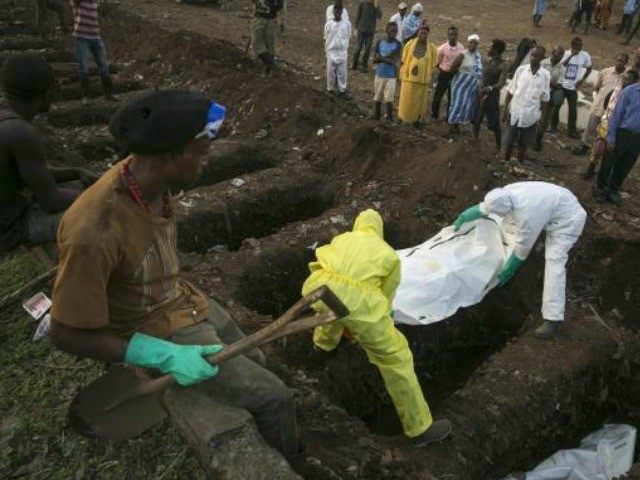A new “cluster” of Ebola cases in a coastal region of Liberia has been identified, after a 17-year-old boy, initially misdiagnosed with malaria, was confirmed dead of the virus. Experts have failed to find the source of this new outbreak and are treating it as a separate set of incidents from the massive outbreak that has taken more than 10,000 lives in West Africa since February 2014.
Seventeen-year-old Abraham Memigar died of the disease in late June, ending a 49-day Ebola-free streak in Liberia and raising numerous questions as to where he contracted Ebola. At least two others were diagnosed with Ebola immediately following his death, and by the end of this week, that number rose to five cases.
Medical officials have yet to find where Memigar came into contact with Ebola. He is not believed to have traveled to Guinea or Sierra Leone before his death, and his home in Liberia is far from either border. A rapidly spreading rumor in the area attributed the virus to a dog that Memigar and his family had eaten shortly before his death. If true, Memigar would officially be labeled the Patient Zero of a second outbreak unrelated to the one elsewhere in the country last year, and it would have been the first case of a dog being able to transfer Ebola to a human being. (Dogs are known to be able to carry the virus without ill effects to their health, but are not known to be able to infect a human with it.)
Tests on the uneaten remains of the dog did not find any trace of the virus, however. One did expert warn that the dog’s negative body testing was somewhat inconclusive because “the remains are in bad condition and the test is designed for humans.” Nonetheless, local health authorities are dismissing the dog meat as a source for Ebola.
As the World Health Organization (WHO) is treating this as a separate outbreak from the major contagion that made international headlines in summer 2014, these five cases are not added to the greater total of Ebola cases internationally. “The origin of infection of the cluster of cases is currently under investigation. … At present, these cases are considered to constitute a separate outbreak from that which was declared over on May 9,” WHO said in a statement.
In that outbreak, a small uptick in cases began last week, with the WHO confirming 30 cases in Guinea and Sierra Leone, both of which have failed to contain the disease. This is the largest number of cases in one week since mid-May. Experts have blamed a return to unsanitary burial practices following an ebb of the disease’s spread this year for its resurgence. Ebola is spread through contact with the bodily fluids of a contaminated person, which necessarily occurs during some traditional burial rituals.
Contact with an Ebola survivor’s bodily fluids may also infect a healthy person for a period of time after the survivor is declared Ebola-free. Liberian publication Front Page Africa reports that one source investigating the Memigar case confirmed to them that “we are now exploring the possibility that the young lad may have had sexual intercourse with an Ebola survivor. It is something that we are seriously looking into.” The same publication, however, does not indicate any suspect Ebola survivors in the boy’s social circle and notes that others living in the village have another theory. “The parents don’t want to say the truth, that boy got the Ebola from Guinea when they went to Lofa County to play football game,” one villager told the newspaper, claiming that the boy had traveled to Zorzor, a town close to the Guinea border, for the game. Family members have denied this claim, however.
Shortly after the news of the second outbreak surfaced, a UN review of the World Health Organization’s response to the Ebola crisis last year sharply criticized the organization’s slow response to the outbreak, suggesting the WHO “tends to adopt a reactive, rather than a proactive approach to emergencies” that may have cost hundreds, if not thousands, of lives.
“They played politics with the lives of West Africans – the lives of the sub-region, especially the Mano River Basin. That wasn’t fair,” one Liberian politician, Sekou Kanneh, responded to the study, condemning the idle response early in the outbreak’s development.

COMMENTS
Please let us know if you're having issues with commenting.